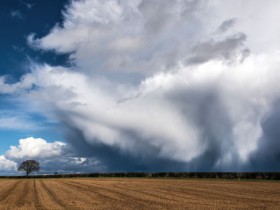News
England’s Secret Nuclear Bunkers

Atlas Obscura, 11 September 2018
www.atlasobscura.com/articles/england-secret-nuclear-bunkers
Descend Into Great Britain’s Network of Secret Nuclear Bunkers. And meet the determined enthusiast bringing them back to life.
READ ARTICLE AT Atlas Obscura
Inside the Anarchy

Archaeology Magazine, 1 August 2018
www.archaeology.org/issues/306-1807/letter-from/6678-letter-from-england
Archaeologists explore the landscape of England’s first civil war
READ ARTICLE AT Archaeology Magazine
Scaling up our response to super hurricanes
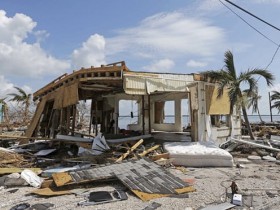
The Guardian, 14 September 2017
www.theguardian.com/news/2017/sep/14/scaling-up-our-response-to-super-hurricanes
Weatherwatch: As oceans warm and the probability of more intense tropical storms rises, is it time to revamp the rating system?
READ ARTICLE AT The Guardian
Scientists devise early thunderstorm alerts for fishermen in Africa
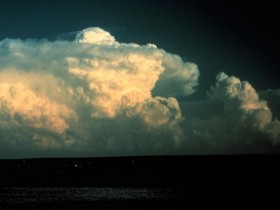
The Guardian, 29 August 2017
www.theguardian.com/news/2017/aug/29/scientists-devise-early-thunderstorm-alerts-for-fishermen-in-africa
Weatherwatch: Team develops storm warning based on satellite observations in hopes of reducing boating deaths on Lake Victoria
READ ARTICLE AT The Guardian
Future forecasts: Met experts ask for your ideas
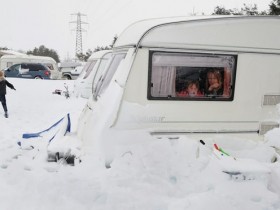
The Guardian, 15 August 2017
www.theguardian.com/news/2017/aug/15/future-forecasts-met-experts-ask-for-your-ideas
Weatherwatch: Meteorology experts open the floodgates as they ask for public views about what makes for a satisfying weather prediction.
READ ARTICLE AT The Guardian
Mystery of missing tsunamis explained by geological model
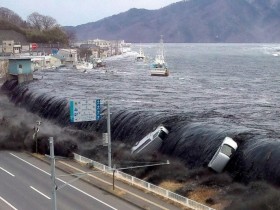
New Scientist, 11 August 2017
www.newscientist.com/article/2143611-mystery-of-missing-tsunamis-explained-by-geological-model/
How is it that one underwater landslide leads to a devastating tsunami, while another of similar size barely causes a ripple?
READ ARTICLE AT New Scientist
Jellyfish blooms linked to offshore gas platforms and wind farms
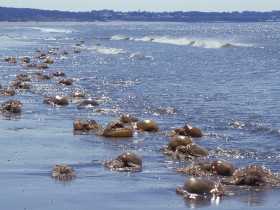
New Scientist, 31 July 2017
www.newscientist.com/article/2142322-jellyfish-blooms-linked-to-offshore-gas-platforms-and-wind-farms/
Jellymageddon is upon us – and we might be partly responsible.
READ ARTICLE AT New Scientist
Balancing out the lulls of wind power with a wider reach across Europe

The Guardian, 27 July 2017
www.theguardian.com/news/2017/jul/27/balancing-out-the-lulls-of-wind-power-with-a-wider-reach-across-europe
Weatherwatch: Europe has seven prevailing weather regimes, a system wind farms could better exploit to even out supply and demand.
READ ARTICLE AT The Guardian
Find the flow: Harnessing the incredible power of living fluids

New Scientist, 28 June 2017
www.newscientist.com/article/mg23531320-400-find-the-flow-harnessing-the-incredible-power-of-living-fluids/
We’re beginning to learn the rules that govern how everything from flocks of birds to sperm cells flow, and it could transform technology and medicine
READ ARTICLE AT New Scientist
Hunting for Mars-like life a kilometre below Earth’s surface

New Scientist, 22 July 2016
www.newscientist.com/article/2098349-hunting-for-mars-like-life-a-kilometre-below-earths-surface/
Kate Ravilious takes an 8-minute lift ride to an underground lab in Yorkshire, UK, doing research that could help NASA’s Mars 2020 rover …
READ ARTICLE AT New Scientist
Seismic shift: Can we cloak cities from earthquakes?
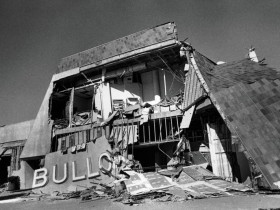
New Scientist, 20 July 2016
www.newscientist.com/article/mg23130830-400-seismic-shift-can-we-cloak-cities-from-earthquakes/
From underground musical pipes to swaying metal rods and strategically planted trees, these megaprojects could conquer earthquakes and tame tsunamis
READ ARTICLE AT New Scientist
Rain makers: How high-flying bacteria could control the clouds
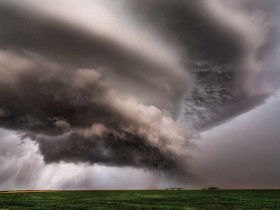
New Scientist, 13 April 2016
www.newscientist.com/article/mg23030690-400-rain-makers-how-highflying-bacteria-could-control-the-clouds/
Microbes in the clouds seem able to hijack the weather for their own good, summoning drizzle and downpours. Can we use them to control where rain falls?
READ ARTICLE AT New Scientist
Writing on the Church Wall
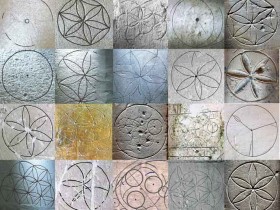
Archaeology Magazine, 10 August 2015
www.archaeology.org/issues/190-1509/letter-from/3554-letter-from-england-medieval-church-graffiti
Graffiti from the Middle Ages provides insight into personal expressions of faith in medieval England
READ ARTICLE AT Archaeology Magazine
When hurricanes hardly happen

The Guardian, 22 June 2015
www.theguardian.com/news/2015/jun/22/weatherwatch-when-hurricanes-hardly-happen
Kate Ravilious on the current North American hurricane drought, and why it might have another year to run.
READ ARTICLE AT The Guardian
Meteorology outwits malaria
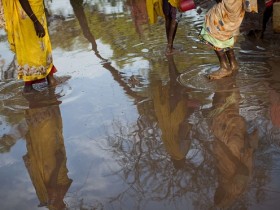
The Guardian, 15 June 2015
www.theguardian.com/news/2015/jun/15/weatherwatch-meteorology-outwits-malaria
Kate Ravilious on how thousands of lives could be saved by a new system that uses targeted weather forecasts to predict outbreaks of malaria.
READ ARTICLE AT The Guardian
Terrawatch: the enemy below
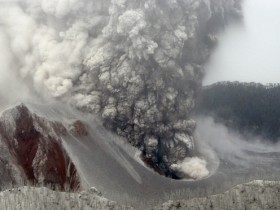
The Guardian, 31 May 2015
www.theguardian.com/science/2015/may/31/terrawatch-volcano-eruption
Kate Ravilious on the near impossibility of predicting eruptions, even on well-monitored volcanoes, let alone those that appear inactive.
READ ARTICLE AT The Guardian
How to keep wind turbines turning

The Guardian, 25 May 2015
www.theguardian.com/environment/2015/may/25/weatherwatch-wind-turbines-research
Research from the University of Colorado on wind data from Australia, Canada and the US, shows how careful spacing of turbines can keep the power on.
READ ARTICLE AT The Guardian
Quake heightens Nepal landslide concern
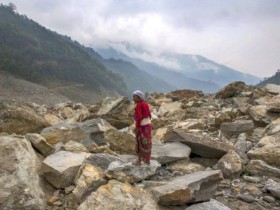
BBC News, 13 May 2015
www.bbc.co.uk/news/science-environment-32721277
The magnitude 7.3 earthquake that shook Nepal on Tuesday lies right under one of the most landslide-prone parts of the country.
READ ARTICLE AT BBC News
Pollen shed in rain – brings more showers
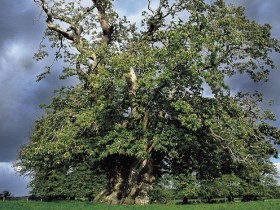
The Guardian, 13 May 2015
www.theguardian.com/news/2015/may/13/weatherwatch-ravilious-research-michigan-pollen-trees-rain-clouds-asthma
Cycle of plant growth revealed as scientists find trees’ pollen exploding in downpours helps to form clouds.
READ ARTICLE AT The Guardian
Terrawatch: a continental pile up
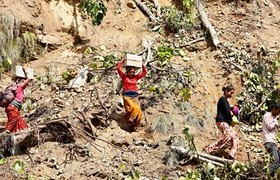
The Guardian, 3 May 2015
www.theguardian.com/science/2015/may/03/terrawatch-nepal-earthquake-fault
Kate Ravilious explains the geological background to the devastating earthquake that rocked Nepal.
READ ARTICLE AT The Guardian
Why some quakes are worse than others
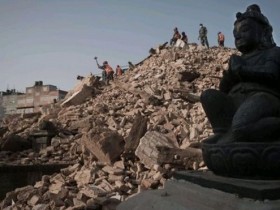
BBC News, 1 May 2015
www.bbc.co.uk/news/32549706
Nepal quake: Why are some tremors so deadly?
READ ARTICLE AT BBC News
Kathmandu earthquake nightmare not yet over

Cosmos , 27 April 2015
cosmosmagazine.com/earth-sciences/kathmandu-earthquake-nightmare-not-yet-over
Geologists believe unrelieved strain still remains within the fault line that ruptured in Nepal on Saturday and claimed thousands of lives. Kate Ravilious reports
READ ARTICLE AT Cosmos
Nepal earthquake: how to prevent thousands more deaths
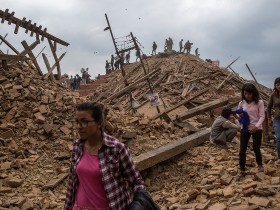
New Scientist, 27 April 2015
www.newscientist.com/article/dn27416-nepal-earthquake-how-to-prevent-thousands-more-deaths.html#.VT5EfbqR8UU
The 2008 Sichuan earthquake taught us that managing and preventing landslides could save thousands of lives in Nepal over the coming weeks
READ ARTICLE AT New Scientist
Even a deluge can have its upside
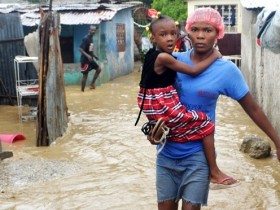
The Guardian, 27 April 2015
www.theguardian.com/news/2015/apr/27/weatherwatch-even-deluge-upside
Kate Ravilious on how analysis of satellite data overturned an assumption about the effect of rainfall on violent winds.
READ ARTICLE AT The Guardian
Nepal quake ‘followed historic pattern’
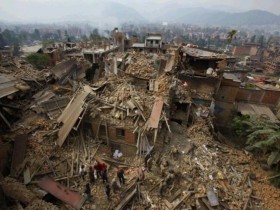
BBC News, 26 April 2015
www.bbc.co.uk/news/science-environment-32472310
Nepal’s devastating magnitude 7.8 earthquake on Saturday was primed over 80 years ago by its last massive earthquake in 1934, geologists working in the region say.
READ ARTICLE AT BBC News
Case of the Giant Blob

The Guardian, 16 April 2015
www.theguardian.com/news/2015/apr/16/weatherwatch-case-giant-blob
Kate Ravilious on how an unusual envelope of warm water in the Pacific has been bringing extraordinary weather to parts of the US.
READ ARTICLE AT The Guardian
Terrawatch: the history of dirt
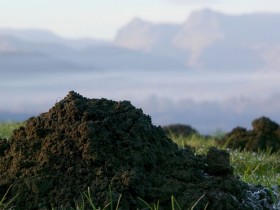
The Guardian, 5 April 2015
www.theguardian.com/science/2015/apr/05/terrawatch-soil-earth-origins-life-erosion
Kate Ravilious on the soil to which we owe our existence, relatively new to Earth at a mere 450 million or so years old, and now under increasing threat of eroding away.
READ ARTICLE AT The Guardian
Weatherwatch: It may feel like spring, but we are not out of the winter woods yet
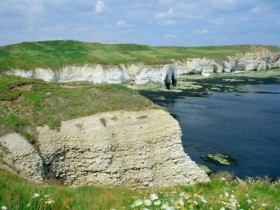
The Guardian, 23 March 2015
www.theguardian.com/news/2015/mar/23/weather-spring-oceans-snow
Warmth is on its way, once the oceans have caught up
READ ARTICLE AT The Guardian
Weatherwatch: The ‘eclipse wind’ – help solve the mystery

The Guardian, 16 March 2015
www.theguardian.com/science/2015/mar/16/solar-eclipse-wind-uk-friday-experiment-weather
Kate Ravilious on why meteorologists are asking people throughout the UK to take part in an experiment during Friday’s solar eclipse
READ ARTICLE AT The Guardian
Terrawatch: The wells will run dry

The Guardian, 1 March 2015
www.theguardian.com/science/2015/mar/01/terrawatch-oil-energy
Oil is millions of years in the making: we consume it at a rate of 30 billion barrels per year. We have to accept that it is going to run out.
READ ARTICLE AT The Guardian
Weatherwatch: Hay bale city is finding way to a healthier environment indoors
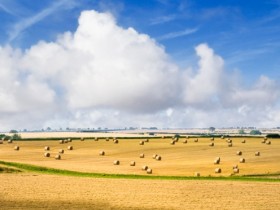
The Guardian, 23 February 2015
www.theguardian.com/news/2015/feb/23/weatherwatchuk-environment
Hay bale city is finding way to a healthier environment
READ ARTICLE AT The Guardian
Weatherwatch: The ups and downs of North Atlantic storms
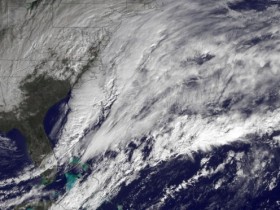
The Guardian, 16 February 2015
www.theguardian.com/news/2015/feb/16/weatherwatch-north-atlantic-storms-historical-research
Kate Ravilious on research that tracks the historical intensity of storms
READ ARTICLE AT The Guardian
Terrawatch: The rain that fell in the light of the faint young sun
The Guardian, 1 February 2015
www.theguardian.com/science/2015/feb/01/terrawatch-fossil-raindrops-atmosphere
Kate Ravilious on a project using fossil raindrop craters to study Earth’s early atmosphere
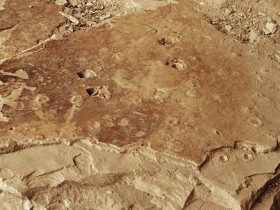
fossil raindrops
Looking for microbes on Mars
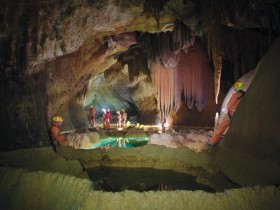
Cosmos, 29 January 2015
cosmosmagazine.com/physical-sciences/looking-microbes-mars
Scientists are fossicking in our planet’s most unearthly places to practise searching for life on Mars. Kate Ravilious investigates.
READ ARTICLE AT Cosmos
Weatherwatch: Juno storm switches tack barrelled along by jet stream
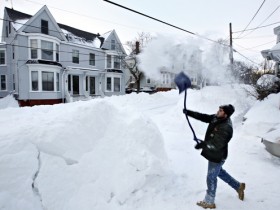
The Guardian, 28 January 2015
www.theguardian.com/news/2015/jan/28/weatherwatch-us-juno-storm-jetstream-alberta-clipper
Kate Ravilious New Yorkers braced for severe blizzard receive milder Alberta Clipper storm
READ ARTICLE AT The Guardian
Weatherwatch: Too hot for take-off

The Guardian, 18 January 2015
www.theguardian.com/news/2015/jan/18/weatherwatch-aviation-take-off-speed
Kate Ravilious on a study showing that higher temperatures could lead to increased numbers of aircraft carrying reduced cargo or fewer passengers to achieve take-off speed.
READ ARTICLE AT The Guardian
When Earth was a frozen Snowball

BBC Earth, 12 January 2015
www.bbc.com/earth/story/20150112-did-snowball-earth-make-animals
715 million years ago the entire planet was encased in snow and ice. This frozen wasteland may have been the birthplace of complex animals
READ ARTICLE AT BBC Earth
Weatherwatch: A real icy blast

The Guardian, 12 January 2015
www.theguardian.com/news/2015/jan/12/weatherwatch-real-icy-blast
Kate Ravilious explains the ‘weather bomb’ phenomenon that was responsible for the unusually strong winds that have been pounding Scotland and northern England
READ ARTICLE AT The Guardian
Terrawatch: Taking a closer look at Ben Nevis
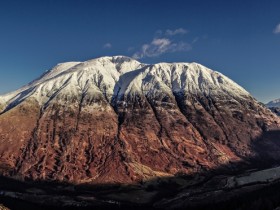
The Guardian, 31 December 2014
www.theguardian.com/science/2014/dec/31/terrawatch-a-closer-look-at-ben-nevis
Taking a closer look at Ben Nevis
READ ARTICLE AT The Guardian
Under Stonehenge
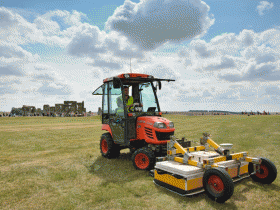
Archaeology, 15 December 2014
www.archaeology.org/issues/161-1501/features/2782-england-stonehenge-neolithic-ceremonial-landscape
Remote-sensing technologies reveal that Stonehenge is surrounded by thousands of yet-to-be-interpreted Neolithic archaeological features.
READ ARTICLE AT Archaeology
Weatherwatch: If it’s snow you want – head for the heights
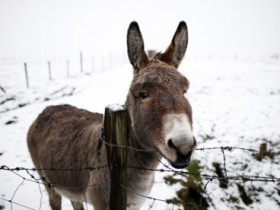
The Guardian, 14 December 2014
www.theguardian.com/news/2014/dec/14/weatherwatch-snowfall-britain-altitude
Kate Ravilious compares the statistics for snowfall in the UK, and finds that your chances of getting out the toboggan this winter depend on where exactly you live
READ ARTICLE AT The Guardian
Weatherwatch: Why a chilly morning was good news for Oxfordshire slatters
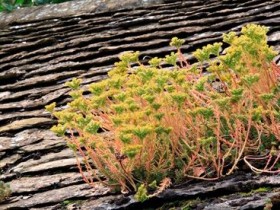
The Guardian, 8 December 2014
www.theguardian.com/news/2014/dec/08/weatherwatch-slatters-stonesfield-slate-oxford-quarry
Stonesfield slate, which covers many Oxford colleges’ roofs, needs a frost – a cold snap meant plenty of work for quarrymen
READ ARTICLE AT The Guardian
Terrawatch: Fire and ice creators of Yosemite’s plains and canyons
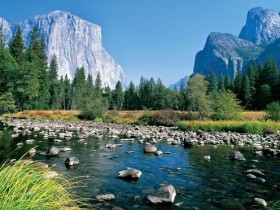
The Guardian, 3 December 2014
www.theguardian.com/science/2014/dec/03/terrawatch-ravilious-yosemite-fire-ice-granite-canyons
How did fire and ice create Yosemite’s plains and canyons?
READ ARTICLE AT The Guardian
Transport pollution killed nearly quarter of a million in 2005
Environmental Research Web, 25 November 2014
environmentalresearchweb.org/cws/article/news/59309
Particulate matter from vehicles caused 242,000 premature deaths
READ ARTICLE AT Environmental Research Web
Climate change could cut West African sorghum yields by a fifth
Environmental Research Web, 24 November 2014
environmentalresearchweb.org/cws/article/news/59308
Rising temperatures, rainfall changes and shifting monsoon set to harm crop output
READ ARTICLE AT Environmental Research Web
Sun’s magnetic field alters lightning strikes on Earth
Environmental Research Web, 19 November 2014
environmentalresearchweb.org/cws/article/news/59305
READ ARTICLE AT Environmental Research Web
Weatherwatch: ‘No flowers, no birds – November!’
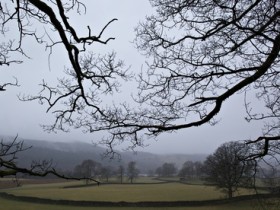
The Guardian, 16 November 2014
www.theguardian.com/news/2014/nov/16/weatherwatch-no-flowers-no-birds-november
Kate Ravilious finds Thomas Hood’s poem describes a different month to the ones we experience today
READ ARTICLE AT The Guardian
Weatherwatch: All eyes on the sun

The Guardian, 10 November 2014
www.theguardian.com/news/2014/nov/10/country-diary-all-eyes-sun
Kate Ravilious on why astronomers are keeping an anxious watch on AR 12192, the biggest sunspot to appear since 1990
READ ARTICLE AT The Guardian











